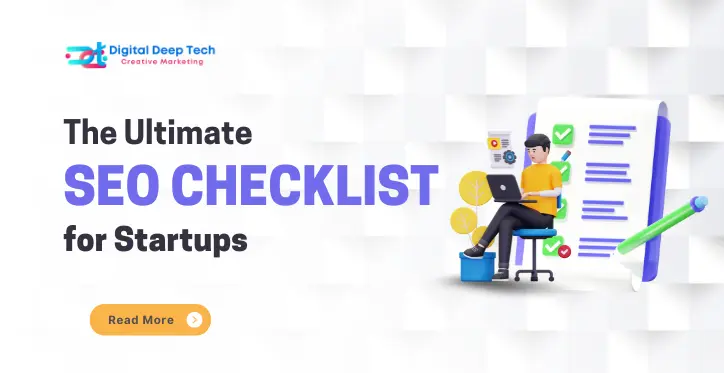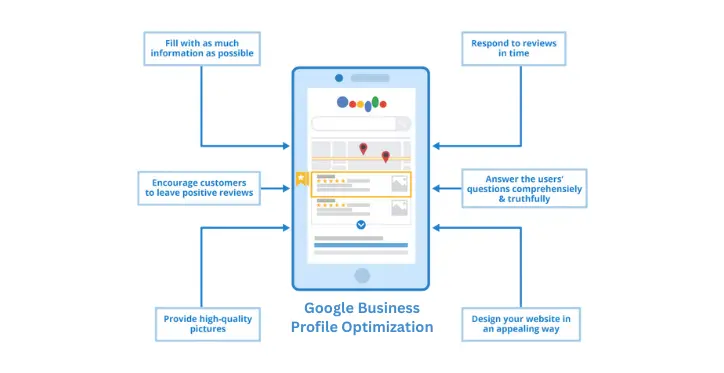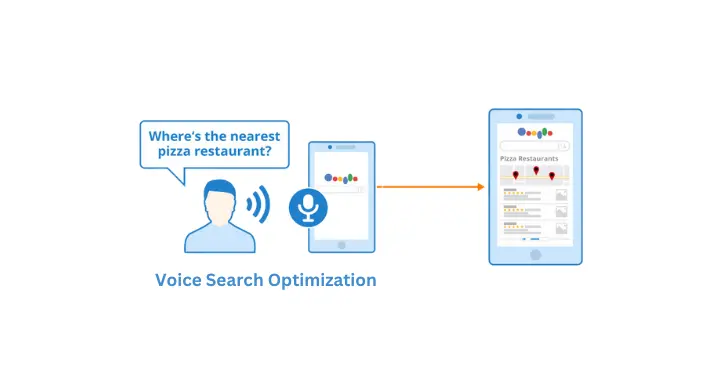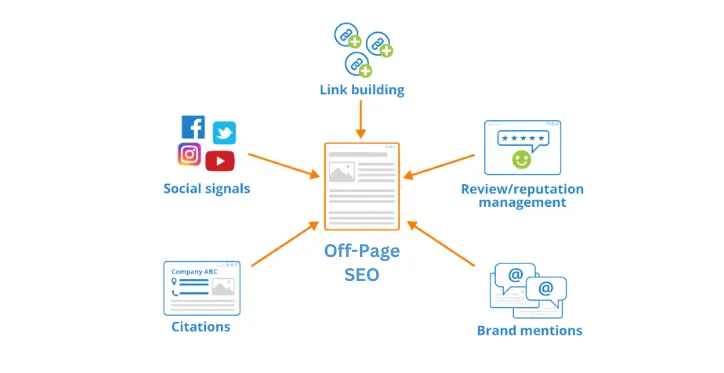The Ultimate SEO Checklist for Startups

Table of the content
Why SEO is Important for Startups
Among all else, probably the most ignored of all factors that come into play when launching a startup is search engine optimization, or SEO. Entrepreneurs spend time building the product and looking for customers but, again, never really get down to business: how are their audience members going to find them online?
Usually, people view SEO as too technical, too expensive, or consuming too much of their time. Thereby, lots of startups just forget about it. No problem, they reason. They’ll get to it “later.”
Pretending to do nothing with SEO is the same as opening a store without a sign outside. Now you can envision having this great product without having anyone ever know it exists at all. With no SEO, your website would be like living in the huge web, totally invisible.
To dominate those searchers there will always be competition that has seriously invested in SEO and they will end up at the top of search engines. You, on the other hand, will be very far behind. This translates into lost opportunities, fewer customers, and slower business growth.
I’m Deepak Sharma, the founder of Digital Deep Tech, a white label Local SEO service provider and one with loads of experience working with hundreds of startups over the years. I know firsthand how pivotal SEO is to business success, especially when it’s a local or small business.
Good news? You don’t have to be intricate or pricey, though. Instead, by following this ultimate SEO checklist, you can build a strong foundation to get organic traffic and convert visitors into loyal customers.
Getting Your On-Page SEO Right
Your website is live, but it is not optimized for search engines. This makes it harder for Google to understand your site, and lower your chances of ranking high on search engine results pages (SERPs).
As another barrier to your beautiful website is without on-page SEO. Google algorithms are getting smarter, but they still require hints from your content on your site to rank you correctly. If you fail to pay attention to those hints through optimizing title tags, meta descriptions, or even headings, the site may rank poorly for the keywords that your target audience uses for searching.

Solution
On-page SEO falls entirely within your control and is one of the more simple parts of SEO to get right. This is your to-do list to ensure that your on-page SEO is tip-top:
- Title Tags and Meta Descriptions: Every page should be accompanied by an optimized for the keyword title tag and meta description. Keywords such as affordable SEO for local businesses or small business local SEO might go into these tags, depending on your specific keywords.
- Headings: You should use descriptive H1, H2, and H3 tags to guide the reader but also assist search engines in following the content structure.
- Internal Linking: Cross-linking to relevant pages on your website will improve user navigation and increase search engine rankings.
- Image Alt Text: Each picture on your website should apply alt text to help search engines understand the content of the image.
You can enhance both the user experience and rank with these on-page SEO methods as part of your strategy.
Keyword Research: The Foundation to Success
Many of today’s startups don’t realize how important keyword research is or cannot be bothered with it at all. Using the wrong keywords or not using them at all can easily become a waste of time, resources, and money.
Sometimes, the worst tragedy that can happen to you and your site is attracting the wrong audience or no audience at all in the event that you target the wrong keywords. Imagine that after putting so much effort into blog posts or product descriptions, no one sees it because you didn’t do your research about what is actually being sought after.
Solution
As a startup, you will have to ensure that keyword research is done correctly. Firstly, target long-tail keywords, which are extremely specific phrases with significantly lesser competition than generic ones. For example, “local small business SEO” or “local business SEO services” may be highly less competitive than a generic term like “SEO services.”
Use the Google Keyword Planner or any of these tools: Ubersuggest or Ahrefs to:
Find potential keywords with considerable volume and relatively lesser competition.
Target local keywords if you are targeting a specific local area for instance, local SEO Google My Business, or SEO for small local businesses.
Write your keyword naturally and repetition it within your content, especially in headings, meta-descriptions, and body.
Those start-ups that give keyword research importance will automatically attract the targeted audience right from the starting point and hence be able to enhance their online presence as well as growth.
Mastering Local SEO: Google My Business and Beyond
In most cases, local startups have the problem of visibility within their own geographical area. Engaging with a competitor against the other large business can be really intimidating to them, as the latter dominates all local searches
If your business doesn’t appear in the local search results, you’re missing out on a massive opportunity. Perhaps customers in your city are searching for services that match yours to the tee, but without local optimization, you won’t appear in Google My Business or other listings of local businesses. That’s like giving away all of your potential customers to your competitors.
Solution

If you are one of those small businesses or startups that is hoping to grab that highly precious top spot in the local markets, then for sure, local SEO is the most powerful tool for you. Here’s what you should concentrate on:
- Google My Business : Claim and fully optimize your listing. Make sure that the name, address, and phone number of your business appears exact and uniform everywhere. Use relevant keywords such as “plumbing services in Melbourne” and “roofing contacter in Sydney” in your business description realted to your industry.
- Local Citations: Get your business listed in reputable, quality local directories (such as Yelp, Bing Places or Apple Maps) with consistent data.
- Reviews: Find satisfied customers who will talk positively about your business through reviews, for it could affect rankings significantly.
- Location-Specific Content: Write blog posts, landing pages, and service pages tailored for the local area, such as “plumbing services in Melbourne” and “roofing contacter in Sydney”.
By mastering small business local SEO, you get to play on an even field; it makes it easier for local customers to spot and trust your business.
Let's Discuss Your Project
Get a free one-month consultation and share your vision for digital marketing with us.
Creating Authority with Backlinks
Many startups forget about the significance of backlinks. In the lack of backlinks, your website could be unable to gain the authority required to have a good rank in search engines.
If your site has fewer quality backlinks, Google will not take it seriously enough. Thus, your search engine visibility might be highly restricted. It becomes difficult to compete with well-established businesses if your site has very few to no links pointing to it. Backlinks act like “voting of confidence” from other sites; with which Google sees that your content is trustworthy and worthwhile.
Baclinks are really a lot of work, but the reward is immense. Here are some strategies I would recommend to startups:
- Guest Blogging: Write guest articles to other trustworthy blogs in your niche. In the right places, include links pointing back to your website.
- Business Partnerships: Form relationships with other local businesses and you can exchange links.
- Content Marketing: Create shareable content that others will love linking to―infographics, how-to guides, or industry reports.
These will make your website authoritative and enable you rank higher in search engines.
Mobile and Speed Optimization

Most startups don’t understand how much it matters to be mobile friendly, considering that the majority of users browse on mobile. Websites which render slow or are not mobile friendly lose traffic very quickly.
Suppose a customer walks into your site and finds it loads slowly or is not user-friendly on their smartphone. Most of them will close the window in just a few seconds, raising your bounce rate and killing your chances of ranking well in Google.
Solution
Mobile-first indexing is now in place so, in simple words, Google will default the mobile version of your website in determining rankings. Here’s how you can be sure your site is optimized:
- Responsive Design: Your website should perfectly adapt to every screen size.
- Page Speed: Check on the loading time of your website using tools like Google PageSpeed Insights and eliminate any speed-damaging issues.
- Mobile Usability: Tap targets: Ensure the buttons are large enough and easy to tap. Legible fonts: Ensure text is legible.
- Navigation: Should be smooth. For mobile or speed, you’ve optimized thus far, which has improved UX and increased the chances of ranking better in the search engine.

Analysis SEO Performance
You’ve implemented an SEO strategy but are not quite sure if it’s working. Anything that a campaign does cannot be known without proper tracking and analysis because its components driving results cannot be identified and so can’t be improved.
SEO running blind. Without monitoring your performance, you can’t possibly make any informed decisions on what’s working and what’s not; rather you may waste time and resource on strategies that are not yielding results.

Solution
There are always these tools to use when tracking SEO endeavors:
- Google Analytics: you can track traffic, bounce rate, session duration, and conversions;
- Google Search Console: you can track keyword rankings and see crawling or indexing issues
- Rank tracking tools: observe changes in the keyword ranking over time with tools Ahrefs or SEMrush
Analyzing such data will enable you to refine your SEO strategy in favor of tactics with the best results.
Conclusion
Follow this comprehensive SEO checklist and you’ll be one step closer to a robust online presence for your startup. Remember that long-term SEO investment can really pay off in the later stages of increased traffic, better rankings, and more customers.
Unlock the potential of your startup with our expert startup SEO services. Get in touch with us today to learn how we can enable you to increase online visibility and attract more customers to create sustainable growth in a competitive marketplace. Grow together!
FAQs
1. Why is local SEO important for small businesses?
Local SEO gets local customers to small businesses by advancing the ranking of those small businesses in Google’s local search.
2. What is Google My Business, and why do I need it?
Google My Business provides free management of your business’s online presence on Google, improving your presence and credibility in searches.
3. Optimization of my website for local SEO
Start by ensuring your Google My Business listing has a consistent NAP information. Also create local citations, and generate location-specific content.
4. What are backlinks and why do you need them?
In simple terms, since backlinks are hyperlinks from other websites to your site, they’re in essence a vote of confidence for your website in the eyes of search engines. This enhances your site’s authority and ranking for searches.
5. How long does SEO take?
SEO is a long-term strategy, and the site might take between 3 to 6 months to increase after wholly turning it on to get the required results, depending on the level of competition and how aggressively you pursue SEO tactics.
6. What are some common SEO mistakes startups make?
Some common mistakes include neglecting keyword research, ignoring local SEO, not optimizing for mobile, and failing to track results.
7. What is on-page SEO, and why is it important?
On-page SEO is the optimization of individual web pages to rank better in the search results. It means optimizing elements like a title tag, meta description, headings, and content.
8. What are Local Citations?
Local citations are mentions of your business on other websites, such as directories, social platforms, and review sites. They help improve local SEO by increasing trust and authority.
9. How can I make my website load faster?
Using tools like Google PageSpeed Insights will point out the problems and help solve them by optimizing images, leveraging browser caching, and minimizing server response times.
10. Why is mobile optimization crucial for SEO?
Because most internet users browse from mobile, Google favors mobile-friendly sites and, without much doubt, a site that is optimized for mobile browsing can be ranked higher on search results in comparison with its non-mobile optimized counterpart.

About the Author
Deepak Sharma is the founder of Digital Deep Tech and a renowned SEO and digital marketing expert with over a decade of experience. Passionate about helping businesses enhance their online presence, Deepak specializes in creating SEO strategies that drive traffic and generate leads.




